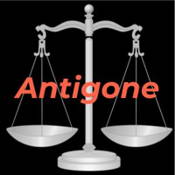
Explore this Show
Overview
Synopsis
French dramatist Jean Anouilh’s Antigone is a modern retelling of the ancient Greek play by Sophocles. The play centers around the young, headstrong Antigone’s defiance of her uncle Creon, the king of Thebes. When Antigone’s brothers Eteocles and Polynices are killed fighting each other in an attempt to take over as king, Creon takes the throne and dictates that only Eteocles will receive a proper burial. Because he led the attack against Thebes, Polynices’ body will lie on the battlefield. Bound by familial duty and her conviction that Creon’s order is invalid, the defiant Antigone buries Polynices and boldly faces the consequences alone. Anouilh’s adaptation preserves the mythology of Sophocles’ text, but makes the characters feel and sound human to a contemporary audience. The play is less political than Sophocles’, focusing more on the sentiment of the relationships between Antigone and her family. The English translation by Lewis Galantiere has easily accessible language and works well for both performance and classroom use at the high school level.
Show Information
- Book
- Jean Anouilh
- Based on the Play/Book/Film
- Antigone by Sophocles
- Category
- Play
- Age Guidance
- Youth (Y)/General Audiences (G)
- Number of Acts
- 1
- First Produced
- 1944
- Genres
- Drama
- Settings
- Period, Unit/Single Set
- Time & Place
- Thebes, Ancient Greece., In front of a palace.
- Cast Size
- medium
- Licensor
- Concord Theatricals
- Ideal For
- College/University, Community Theatre, High School, Mostly Male Cast, Includes Young Adult, Mature Adult, Adult, Late Teen, Child, Early Teen Characters, Medium Cast
Context
Plot
Characters
| Name | Part Size | Gender | Vocal Part |
|---|---|---|---|
|
Lead |
Female |
|
|
|
Lead |
Male |
|
|
|
Supporting |
Female |
|
|
|
Supporting |
Male |
|
|
|
Supporting |
Male |
|
|
|
Featured |
Male |
|
|
|
Featured |
Male |
|
|
|
Featured |
Male |
|
|
|
Featured |
Male |
|
|
|
Featured |
Female |
|
|
|
Ensemble |
Either Gender |
|
|
|
Ensemble |
Female |
|
Songs
A song with an asterisk (*) before the title indicates a dance number; a character listed in a song with an asterisk (*) by the character's name indicates that the character exclusively serves as a dancer in this song, which is sung by other characters.
Monologues
Scenes
Key Terms
A play, musical, or opera that has been adapted from a written work.
When an actor breaks the fourth wall to speak directly to the audience.
A group of actors who sang, danced, and commented on the action in unison.
Stories from ancient cultures about divine figures and supernatural events, often considered as a combination of literature, science, history, and religion
A theory that there are certain laws and norms common to all humans and separate from any formal law.
Videos
Sorry! We do not currently have videos for this guide.
Quizzes
Themes, Symbols & Motifs
Sorry! We do not currently have learning modules for this guide.
Quote Analysis
Sorry! We do not currently have learning modules for this guide.
